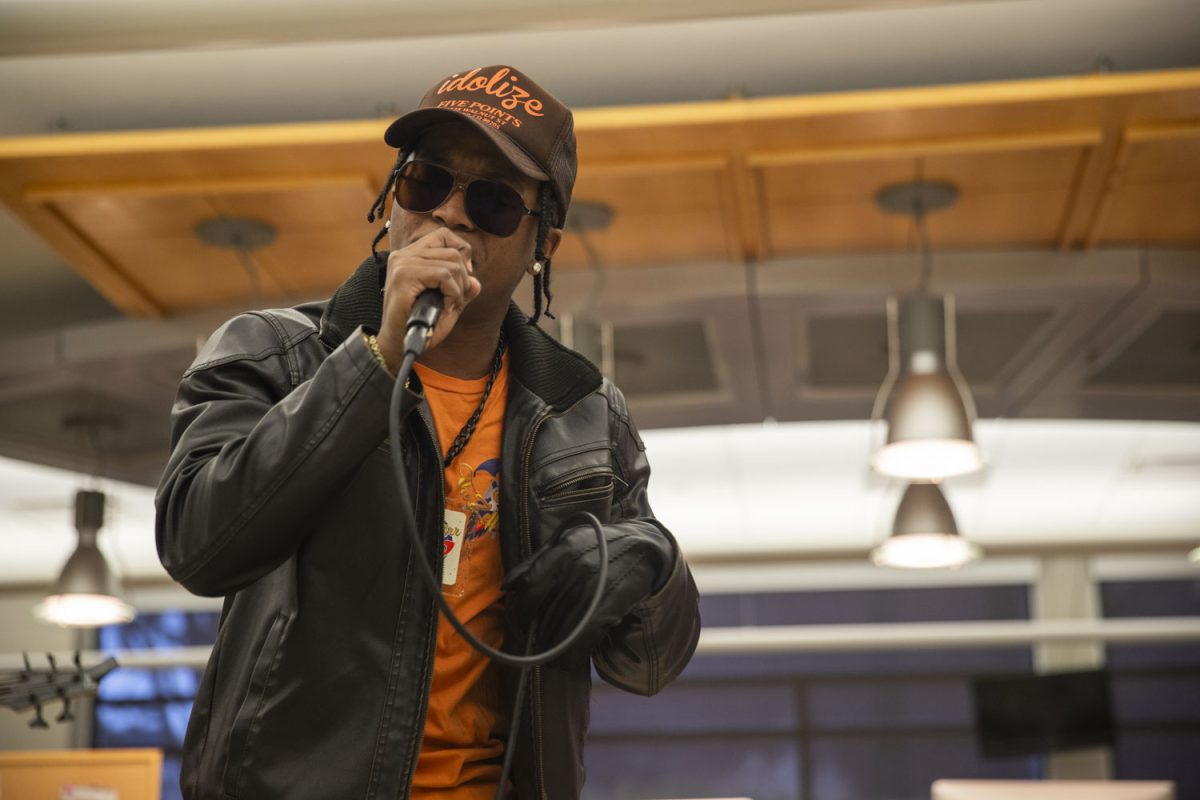Faith and family are often difficult enough for people to manage on their own.
Add in raising a special-needs child and a call to a priesthood not allowed by her church, and Mary Kay Kusner, a chaplain at the University of Iowa Hospitals and Clinics, handles even more.
She will read from Upside Down and Backwards, a book about struggling with religion and parenthood while raising a daughter with a rare genetic mutation, at 7 p.m. today at Prairie Lights Books, 15 S. Dubuque St. Admission is free.
The chaplain had three sons but felt she should have another child when her husband was diagnosed with cancer. After two years of questioning whether that was a good idea and discussing it with a spiritual director, she became pregnant with Anna.
“She tried to be intentional in her relationship with God and tried to discern what her call was,” said Dorothy Whiston, Kusner’s spiritual director. “She was just trying to be very prayerful and listen for God’s call about what was the best thing for her family.”
Her daughter, Anna, was born with a genetic mutation that replicated a piece of a chromosome and placed it upside down and backwards, which is how the book gained its title.
Kusner said she originally started writing the book to as a way of dealing with her problems in raising Anna — who has many developmental issues — and with the God that she felt betrayed her.
“I found that all the books out there were very sugarcoated and nice, and I wanted the real nitty-gritty,” she said. “As I wrote it and came to my understanding about Anna, I felt that perhaps other parents could benefit from it.”
The writer works as a chaplain in the UIHC palliative-care program, which handles end-of-life care and symptom management. She said raising her daughter helped her to become a better chaplain.
“Anna really helped me to learn that being different is a good thing and has really helped me to be more open to people in general,” she said.
Though she felt her work as a chaplain satisfied her own needs to help people and perform ministry work, Kusner — who was raised Catholic — said she wanted to do more to help the people with whom she worked.
In 2009, she was ordained as a deacon by the Roman Catholic Womenpriests, a splinter organization decried by the official church because, by ordaining women, it is considered in violation of the church’s standards. Women who are ordained as deacons or priests, such Kusner, and those who participate in their ordination are excommunicated by the church. This means they are no longer members of the Roman Catholic Church and cannot officially receive the sacraments considered holy by Catholics.
This June, she will be ordained as a priest.
“It was a very hard decisions for her to make, because she’s a lifelong Catholic and has a great love for the Mass, for the liturgy of the church and of church community life,” Whiston said. “She stills sees herself very much as Catholic.”
Kusner said she had looked at other religions, such as Lutheranism, at first but felt she was always meant to be Catholic. So, she instead turned to becoming a deacon and then a priest.
“I felt like it was time for me to claim who I truly am, and that is a priestly person called to ordination,” she said. “I feel like now, as an ordained deacon, I am more in keeping with my true belief.”
Despite a lack of official recognition, Kusner said her patients have not taken issue with her performing of rites and sacraments and even asked her to do so.
The biggest challenge for the chaplain was not excommunication — Kusner holds that while she may violate the letter of Vatican law, she is in keeping with the spirit of her faith — but the response from her parents, strong Catholics who at one point wanted to be a priest and a nun.
Even though her parents suggested that she wait until the Vatican says that women can become priests, Kusner said that waiting would not bring attention to the issue.
“It won’t happen unless we begin to express the desire for it and the need for it to happen,” she said.






